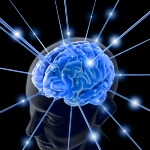 Older adults can overcome forgetfulness and perform just as well as younger people on memory tests. The key, according to a new health breakthrough, is “distraction learning.”
Older adults can overcome forgetfulness and perform just as well as younger people on memory tests. The key, according to a new health breakthrough, is “distraction learning.”
This discovery comes on the heels of evidence that shows that older brains can successfully process both irrelevant and relevant information—subconsciously—to boost memory. Distraction can compensate for a naturally fading memory. The findings are unique and may have dramatic implications moving forward.
The studies in question here combined healthy younger and healthy older adults (between 60 and 78 years old). The participants then studied and recalled a list of words after a short delay. Then they had to do it again, in a surprise test, after a 15-minute delay.
PLUS: Proof that exercise beefs up your brain.
Now, in that delay, half of those words they were supposed to remember appeared as a distraction while people looked at pictures. These repeated words did nothing for the younger people, but significantly boosted the older adults’ ability to recall those words by 30% (compared to the words that were not repeated).
This means that we could one day strategically plant distractions to help aging adults retain their memory, at home, in health care environments, or anywhere. For instance, they could be watching television, or using a tablet, and things they need to remember could run across the screen—like a newsfeed at the bottom of a CNN broadcast, for instance.
What do future learning strategies hold for older individuals? By using visual distractions, they could remember things such as important appointments or medications to take, even if they are not consciously paying attention to the information. Imagine how this could help caregivers looking after their loved ones!
